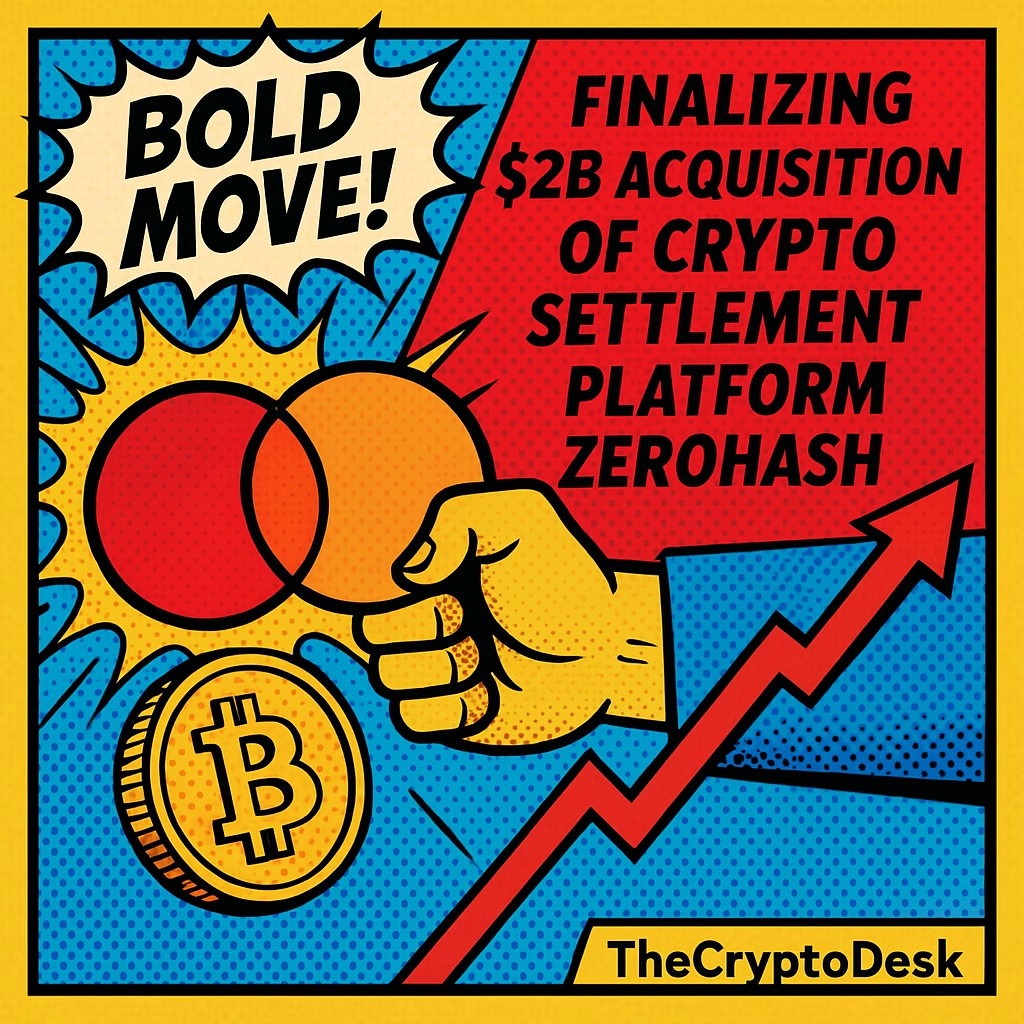In a significant move poised to reshape the landscape of digital finance, Mastercard is reportedly in advanced discussions to acquire the innovative cryptocurrency infrastructure firm Zerohash, with projections for the deal valued between $1.5 billion and $2 billion. This strategic acquisition could dramatically bolster Mastercard’s efforts in the realms of stablecoins and on-chain settlements, as confirmed by a report from Fortune earlier this week.
Founded in 2017 and based in Chicago, Zerohash is at the forefront of providing the essential technology that allows fintech companies, brokers, and merchants to seamlessly integrate cryptocurrency, stablecoin, and tokenization functionalities via robust APIs. These offerings include everything from compliant custody solutions to currency conversions and payout services. For Mastercard, bringing Zerohash’s comprehensive stack in-house means gaining unparalleled control over the settlement processes of both fiat and digital assets, an increasingly important priority as payment systems evolve towards round-the-clock operations for instant transactions.
🔍 Why This Matters
If finalized, this acquisition will mark one of Mastercard’s most significant investments in the rapidly growing world of stablecoins. The move reflects a broader trend among major payment providers seeking to leverage blockchain technology for enhanced cross-border transactions while lowering operational costs. Mastercard has already begun to embrace this shift, rolling out on- and off-ramp services with cryptocurrency partners and pioneering programs that convert crypto balances into spendable fiat at the point of sale. The integration of Zerohash’s capabilities could supercharge these initiatives, enabling more efficient and programmable payout options that align with the fast-paced nature of cryptocurrency transactions.
🚀 Future Outlook
The competitive landscape in the cryptocurrency domain is heating up rapidly. Recently, rivals have made big moves; for instance, Stripe acquired stablecoin infrastructure company Bridge for approximately $1.1 billion, while Coinbase is pursuing a deal for London-based BVNK, potentially marking the largest pure-play stablecoin acquisition to date. These actions reflect a race among payment giants to secure enterprise-ready issuers and robust compliance tools, ensuring they stay ahead of the curve as stablecoin transactions migrate from exclusive trading platforms to mainstream payment solutions.
Additionally, Zerohash’s white-label infrastructure could provide Mastercard with a solid foundation to enhance stablecoin settlement processes for both corporate customers and marketplace transactions, streamlining the integration of crypto functionalities for businesses already within the Mastercard ecosystem. Seeing banks test tokenized deposits and on-chain treasury options illustrates a growing demand for intermediaries capable of bridging the gap between traditional fiat accounts and evolving public blockchains. With Zerohash’s established partnerships and product offerings, Mastercard could shorten integration timelines significantly for merchants and fintechs and eliminate the burdens of direct custody issues.
🌐 Competitive Landscape and Challenges Ahead
Despite the promising growth trajectory for stablecoins—especially for applications like payroll, treasury management, and international payments—the current infrastructure is often fragmented. Issues such as varying compliance regulations across jurisdictions and inconsistent cash-out options can hinder smooth integration. The push towards consolidation among major financial processors and banks aims to create standardized operational rails that will support this expansive ecosystem.
“According to Fortune, Mastercard is in talks to acquire crypto infrastructure startup Zerohash for between $1.5 billion and $2 billion. Zerohash builds stablecoin and crypto trading infrastructure, including tokenization APIs and other services for institutional clients. If…” — Wu Blockchain (@WuBlockchain) October 29, 2025
Neither Mastercard nor Zerohash has officially commented on the specifics of the negotiations. Yet, if a final agreement materializes, it underscores the urgency with which the world’s leading payment processors are transitioning from mere experimental phases to embedding cryptocurrency payments into their core product offerings. This acquisition could well be a defining step in what may be a new era in digital finance.
As this story unfolds, the implications for both consumers and businesses could be profound. It invites us all to consider: how will the rise of stablecoins and enhanced digital payment solutions shape our future transactions? Keep an eye on the developments at Mastercard and Zerohash, as they may signal the next wave of innovation in how we think about and use money.
